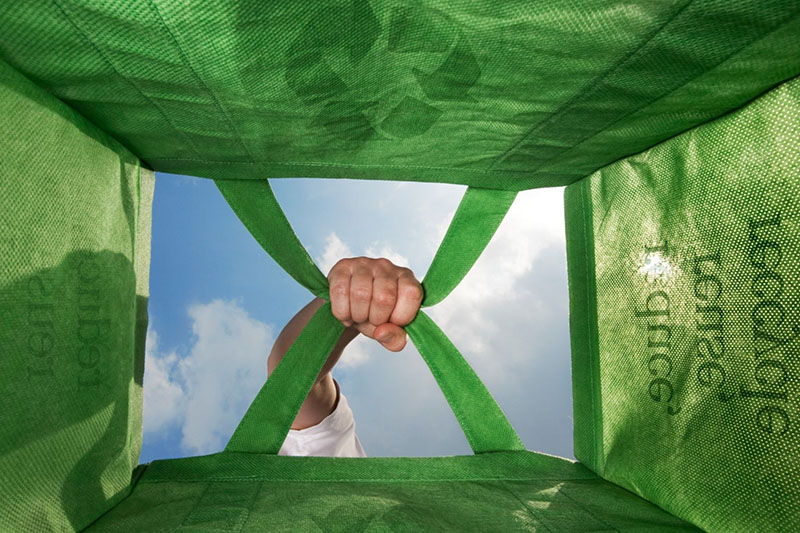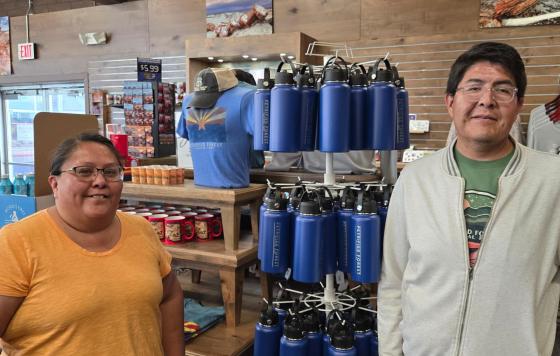
Get those reusable bags ready! On May 4th, plastic carryout bags will no longer be allowed in New Jersey and if you don’t already bring your own reusable bag to the store, now is the time to start! At that time, all stores will be prohibited from providing single-use plastic carryout bags. Smaller shops will still be able to offer paper carryout bags but all grocery stores larger than 2,500 square feet will be prohibited from providing paper carryout bags. No matter where you shop in the Garden State, you should be encouraged to start shifting to reusables!
Why is this important?
Fossil-fueled plastic pollution is a growing environmental and public health crisis globally and New Jersey is not immune. In fact, since New Jersey is surrounded by water on three sides, we witness some of the most visible symptoms of plastic pollution - marine debris on the Atlantic coast to the east and the Delaware River to the west. A report from 2021 shows that the Delaware River likely dumps more plastic litter into the ocean than any other U.S. waterway. Single-use carryout bags are such a common and easily eliminated source of plastic pollution that it is one of the best first steps a state can take to begin tackling the problem. We should be proud of New Jersey for being a leader with a handful of states making reusable bags the new norm.
Why are paper bags banned at large grocery stores?
There is a reason this law primarily focuses on encouraging reuse rather than replacing disposable plastic with disposable paper. This is because ultimately reusing a bag over and over again is going to have a lesser impact on the environment than recycled paper bags made from trees. Supermarkets go through tens of thousands of bags each week, much more than your small shops and bodegas, meaning that if these bags were to all be paper the environmental impact - not to mention the additional costs to grocery stores - would be huge. The grocery store is also the place where customers are most likely to remember to bring their stash of reusable bags. And if they don’t remember now they will once May comes around!
What else does the law cover?
May 4th is also when polystyrene foam (commonly called “Styrofoam”) food service products will be banned. Not only are Styrofoam foodwares another major source of plastic pollution harming wildlife and our environment, they are also toxic to human health - not something we should be eating off! The chemicals in Styrofoam have been linked to cancer and a variety of other health issues and can easily leach out into our food and contaminate our bodies. The New Jersey Business Action Center has compiled a list of wholesale vendors that food businesses can use to find better alternatives to polystyrene.
What can you do to help?
Spread the word! May 4 is fast approaching so make sure your community is ready. The New Jersey Clean Communities Council’s “Bag Up NJ” campaign has information on ways to help your town prepare as well as downloadable signs and flyers in multiple languages to educate residents. You might consider working with your municipal or county Clean Communities Coordinators, your town’s Green Team, or other local organizations and businesses to host reusable bag giveaways. Another option is to organize a reusable bag drive to collect any extra reusable bags (in good condition) that you and your neighbors have laying around then redistribute them to food pantries or others who might need them come May.
Thirty- five years ago (1987), Clean Water Action played a significant role in helping New Jersey make a paradigm shift to mandatory recycling. Since then, we’ve focused on stopping waste before it starts by reducing the amount of single-use disposables we use through our Zero Waste and ReThink Disposable and Zero Waste programs.
Thank you to every Clean Water member and supporter who took action on this important issue and helped us pass one of the strongest single-use bag bans in the nation! We’re excited for this new chapter in New Jersey’s commitment to make less trash and shift to reusables! It may take a little time to fully adjust, but we know it can be done and the environment will thank us for it!


